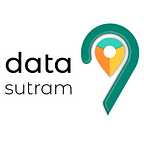Account Aggregation — A Long Smooth Road to Success in Lending, with a Few Hurdles
The “Chicken vs Egg” paradox has piqued curiosity in various domains of life and the lending scenario in a country as vastly populated as India shows a clear example of this phenomenon.
- While SMEs and MSMEs require working capital to scale up their ventures, they are mostly not in a position to provide strong collateral in exchange for a traditional banking loan.
- Micro merchants do not have a robust credit history due to the inability to pledge collateral, which in turn leads to higher rates of loan refusal by banks due to concerns over bad loans and credit defaults.
- A financially sturdy credit history cannot be built and attributed to a large chunk of members of the ever growing small business sector in the country.
However, this situation is slowly but surely undergoing a radical change. With the introduction of GST and UPI in the Indian payments market, prospects for the conversion of short term lending to finance small businesses are looking optimistic. Steering towards a digital transcendental curve, Account Aggregators are here to demystify and unite the seemingly massive gap between loan acquisitions and business owners.
The key component ensuring the success of a “one stop” platform for solving major financial woes of merchants lies in incorporating data to ensure financial inclusivity. Hybrid finance models embedded in fintech firms, NBFCs and traditional banks are set to ease the collection, verification and processing of vital data to generate a complete picture of a person’s credit attributes such as creditworthiness, delinquent tendencies and risk appetite.
Concerns over privacy have reared their heads in the discussion about the subsequent outcomes of a layout such as this but RBI licensed AAs have promised to give total control over personal data to the customers. These financial entities are aimed at compiling diverse customer data on a single platform, granting access to third parties with customer consent.
The primary benefits of AAs are:
- Simplification of paperwork required for availing traditional financial services and products
- Enhancing the seamless integration of people and businesses into the formal credit system
- Speeding up the verification of credit risk of customers for loan lenders
The biggest scope for AAs lies in the possibility of transforming the lending scenario for SMEs and MSMEs by accumulating alternative financial data such as tax returns, online spending patterns, bank statements and bill repayment trends to assemble a feasible substitute for traditional credit scores. This can help in a shift to cash-flow based lending as opposed to asset-based lending, to counter the inability of small businesses to provide collaterals.
Sachet sized loans based on the cash flow of businesses will make way for higher loan repayment rates while boosting the business simultaneously. With successful integration of AAs into the lending ecosphere, the percentage of businesses having access to formal credit will certainly exceed the 10% it is currently positioned at.
Despite the rosy picture the AA framework paints, there are some problems which persist:
- For maximum benefit of the framework to be realized, all banks must be onboarded to minimize the gap between traditional and digitized lending. This would also ensure every business with accounts in various banks enjoy the advantages and features of the AA set up.
- To avoid confusion and simplify communication, the PAN of the enterprise must be used at all points of contact/communication, instead of individual bank accounts or mobile numbers. Furthermore, this would allow uniformity at every stage of the processes to be undertaken.
- Borrowers and lenders should both be on the same page regarding which bank the borrower wishes to approach for a loan and how many accounts the borrower owns under the specified bank. This minimizes erroneous conclusions regarding loan repayments.
Keeping all these pointers in mind, Account Aggregators can democratize and formalize credit to everyone facing obstacles in availing loans or other financial services and products due to weak credit scores. A strengthened, small business powered economy lies on the other side of the rainbow for India, boosted by diverse data and financially inclusive transformative models!
